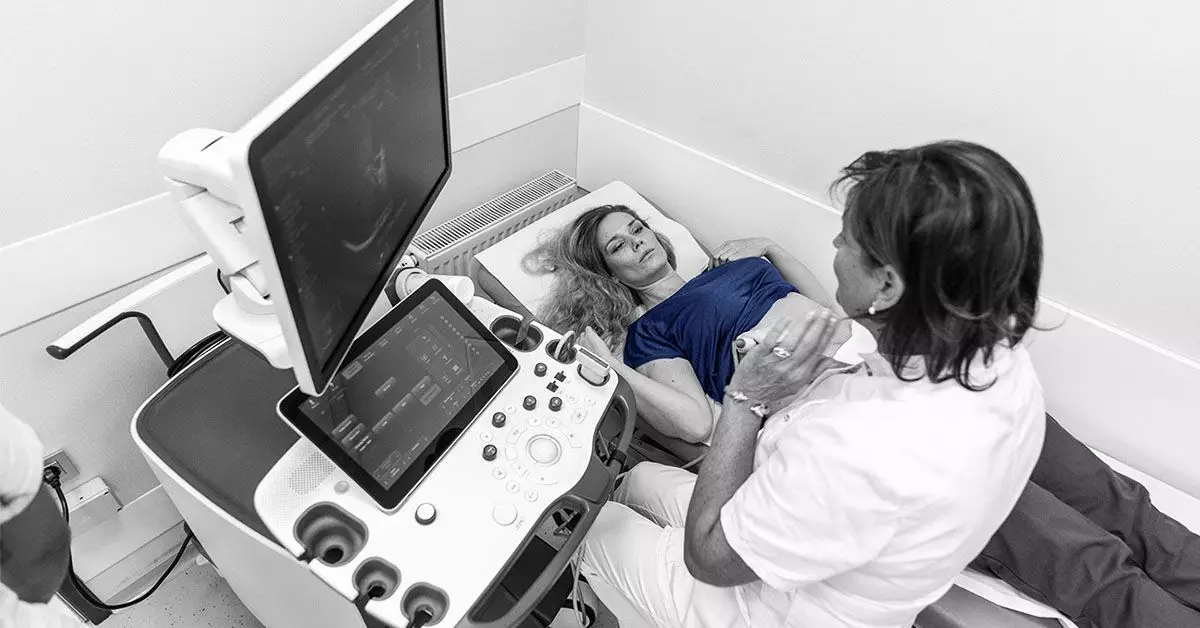Polycystic Ovary Syndrome (PCOS) and cervical cancer are two conditions that often spark concern among those affected, due to overlapping symptoms yet fundamentally distinct etiologies. This article aims to clarify the relationship between PCOS and cervical cancer while shedding light on the broader health implications associated with PCOS, and when it is prudent to seek medical evaluation.
PCOS is a prevalent hormonal disorder impacting numerous individuals across the globe. Characterized by irregular menstrual cycles, hormonal imbalances, and polycystic ovaries, the condition disrupts normal ovulatory function. Symptoms often include weight gain, acne, excessive hair growth, and scalp hair thinning, which can have significant psychological and physical ramifications. The complexity of PCOS extends beyond gynecological concerns, influencing various aspects of health and well-being.
Individuals with PCOS frequently experience not just fertility issues, but also an elevated risk of complications such as type 2 diabetes and heart disease. Due to these far-reaching effects, a multifaceted approach toward management is essential. Patients should aim to engage with healthcare providers to develop personalized treatment plans that address not only the reproductive aspects but also metabolic and psychological factors.
Cervical Cancer: Understanding the Basics
Cervical cancer is markedly different from PCOS. It stems from abnormal growth of cells in the cervix, often spurred by persistent infection with the human papillomavirus (HPV). Early-stage cervical cancer may be asymptomatic, making routine screenings critical for early detection. Methods of prevention include receiving the HPV vaccine, undergoing regular Pap smears, and practicing safe sex; however, it’s important to note that no method guarantees complete immunity.
As symptoms typically arise only after the disease has progressed, understanding the risk factors and engaging in regular screenings can significantly enhance outcomes. Although it is vital to delineate between PCOS and cervical cancer, some individuals may worry that their PCOS increases their risk of developing the latter.
Myth vs. Reality: The Risk of Cervical Cancer and PCOS
It is essential to dispel the myth that PCOS increases the risk of cervical cancer. Current evidence indicates that PCOS itself does not predispose individuals to cervical cancer; rather, the primary risk factor is persistent HPV infection. Nonetheless, the overlapping symptoms between PCOS and cervical issues, such as irregular bleeding, may lead some patients to approach their healthcare providers with concerns.
While there is no direct correlation between the two, the hormonal imbalances seen in PCOS can affect cervical health in other ways. For instance, individuals with PCOS may experience changes in cervical mucus, which is crucial for fertility as it facilitates sperm motility through the cervix. Moreover, while PCOS is recognized as a potential contributor to conditions like cervical insufficiency, which affects pregnancy viability, cervical cancer is not a consequence of PCOS.
Wider Implications of PCOS on Health
Beyond cervical health, PCOS can contribute to various complications, including endometrial cancer, a risk heightened by unopposed estrogen often due to hormonal imbalance. Studies have indicated that women with PCOS may have a threefold increased risk of developing this type of cancer. Therefore, monitoring endometrial health through regular evaluations is paramount.
Mental health should not be overlooked in discussions surrounding PCOS. Many affected individuals report increased instances of emotional distress, anxiety, and depression, compounding the challenges presented by the physical symptoms. This aspect necessitates an integrated treatment plan that encompasses mental health support alongside managing physical symptoms.
Given the complexity of PCOS and its potential symptoms, it is vital for individuals to maintain open lines of communication with healthcare providers. Symptoms that may warrant immediate attention include notable alterations in menstrual cycles, unexplained weight changes, or significant mood fluctuations. Early and proactive discussions with a healthcare professional can lead to an accurate diagnosis and timely intervention.
Moreover, it is crucial to understand that while a Pap smear is an essential tool for cervical cancer screening, it does not diagnose PCOS. A proper diagnostic approach to PCOS often involves a combination of clinical evaluations, blood tests, and imaging studies, ensuring a comprehensive understanding of the patient’s health status.
Concluding Thoughts: Holistic Management of PCOS
While PCOS and cervical cancer share some symptomatic overlap, it is crucial to differentiate between the two conditions. Understanding the broader implications of PCOS on health and incorporating a holistic management strategy is vital. Individuals should seek tailored approaches to their unique needs, addressing both reproductive health and lifestyle factors. Regular screenings and a proactive health management plan can go a long way in ensuring not just physical well-being, but also emotional and psychological resilience in the face of PCOS. For anyone grappling with these concerns, consultation with medical professionals is an essential step towards a clearer path to health.

